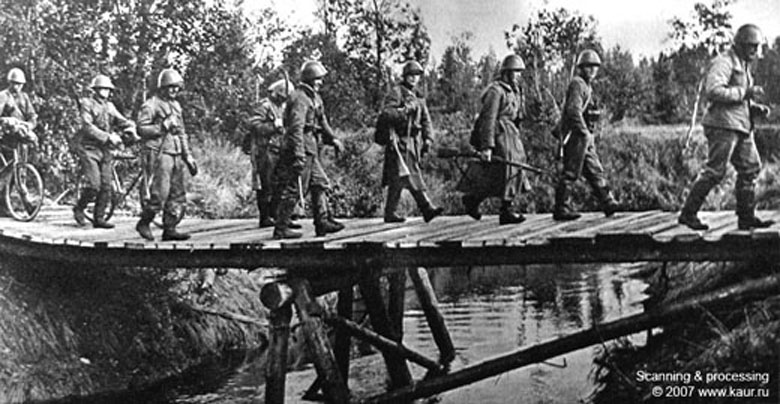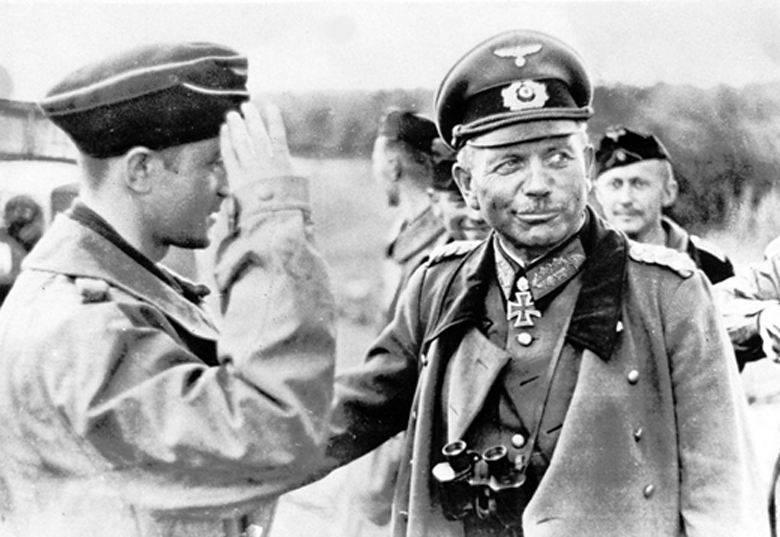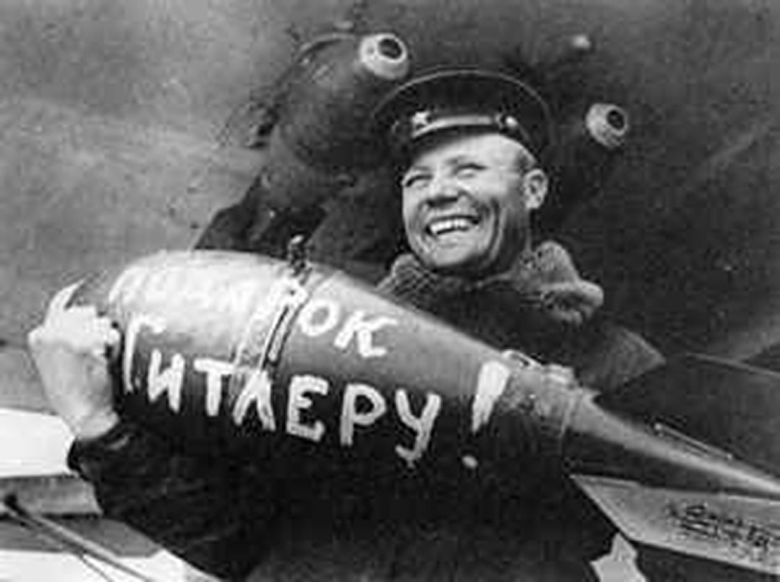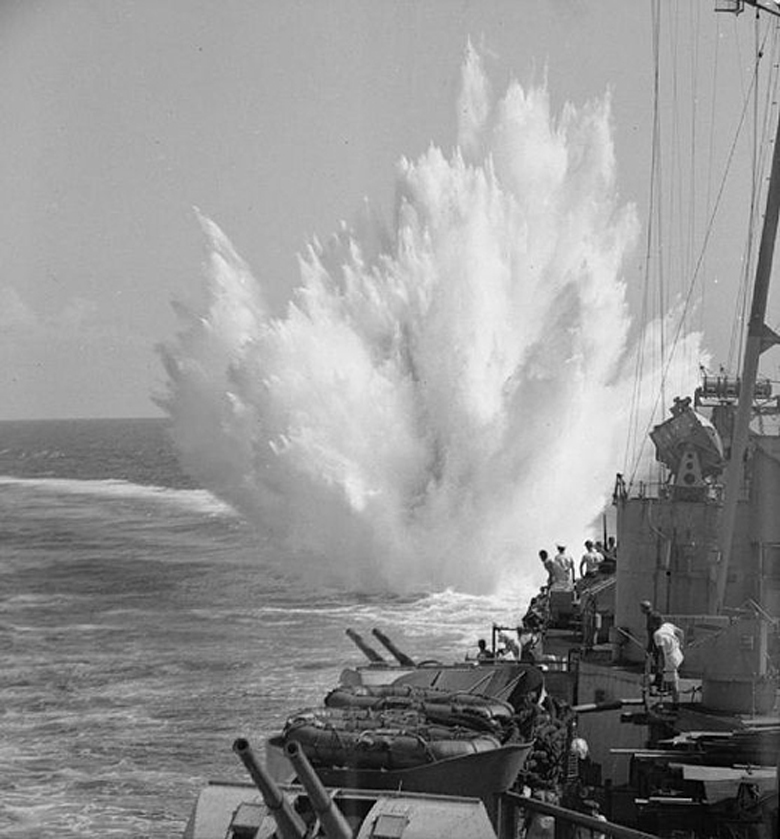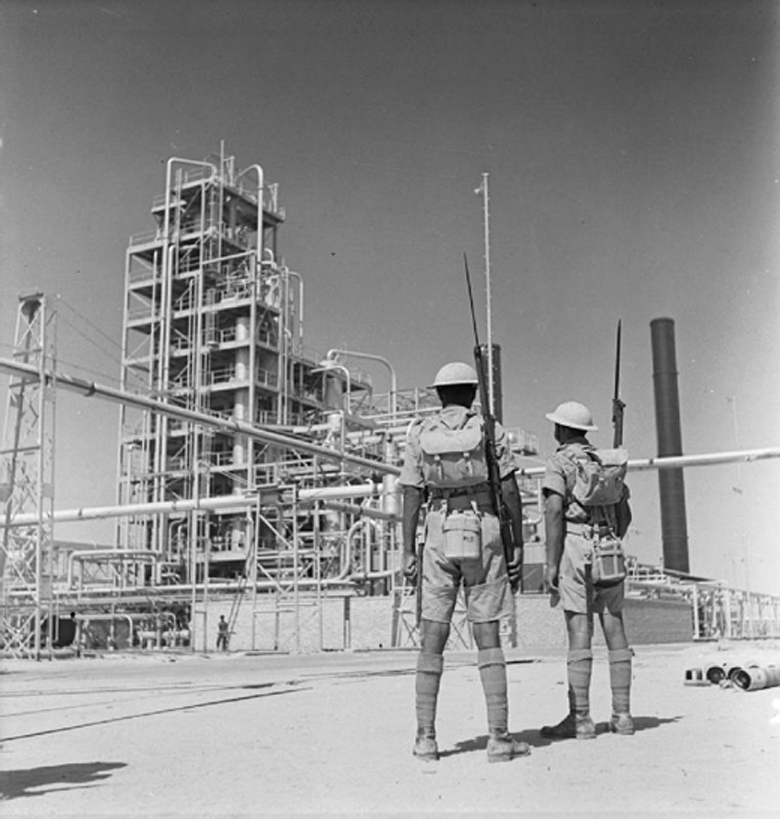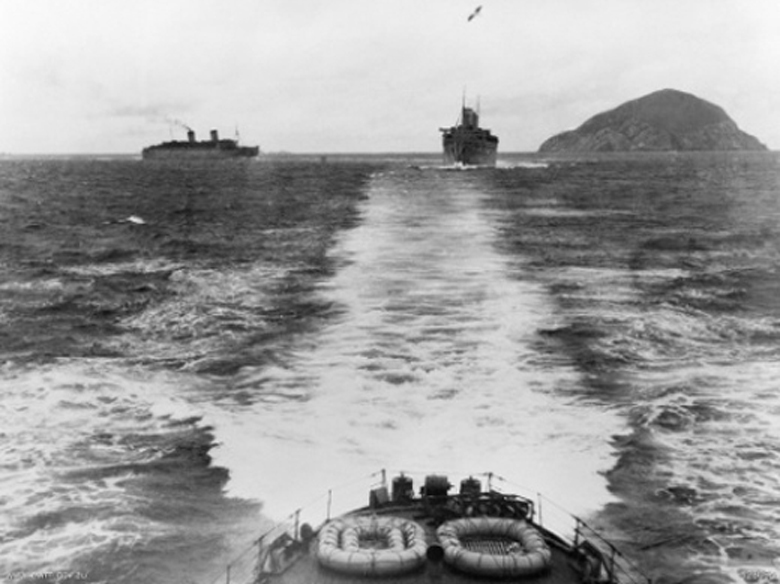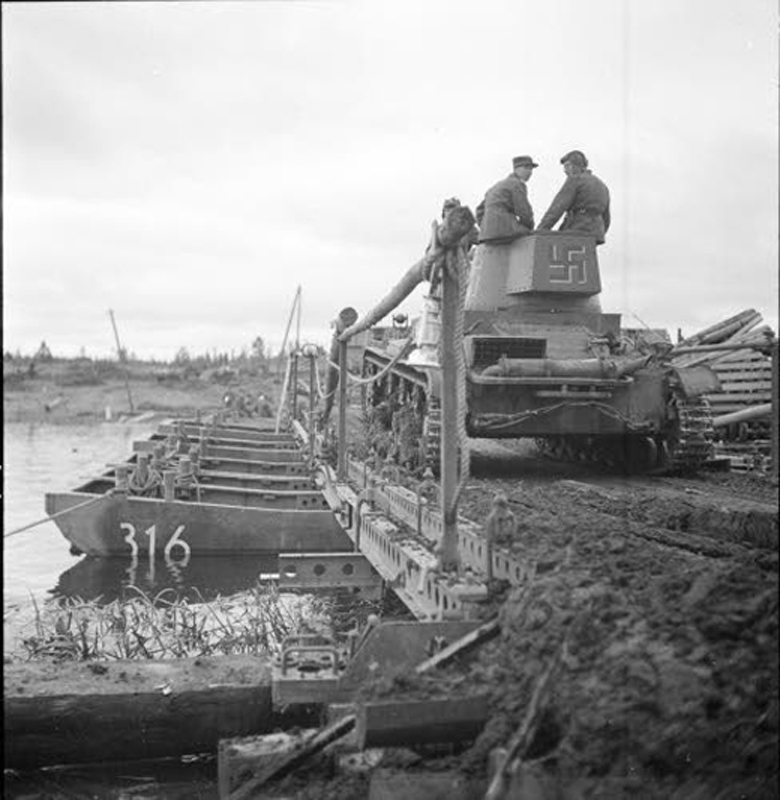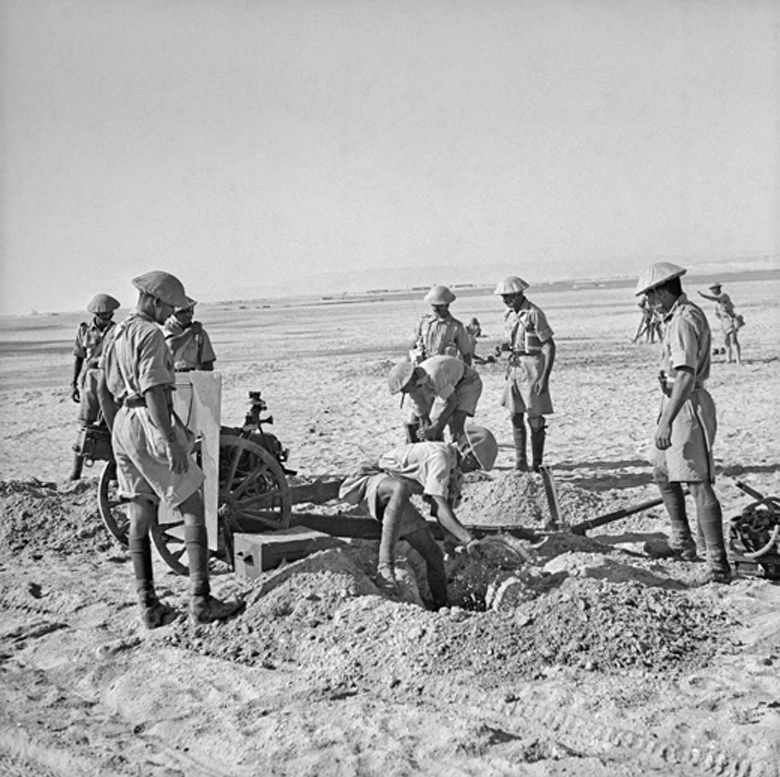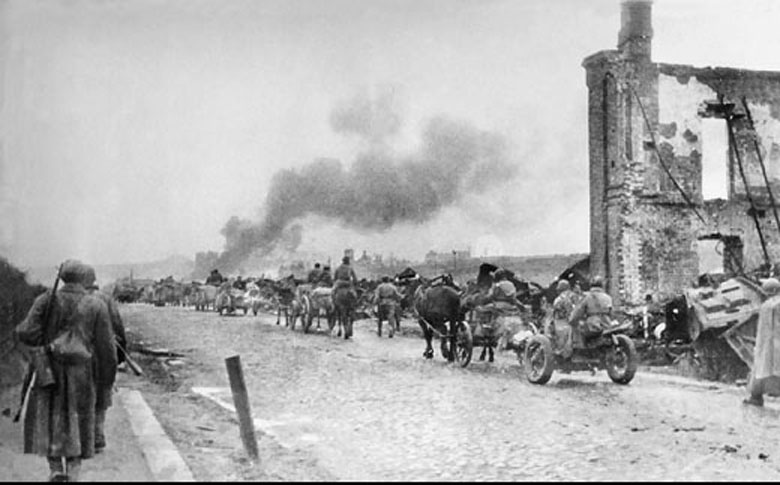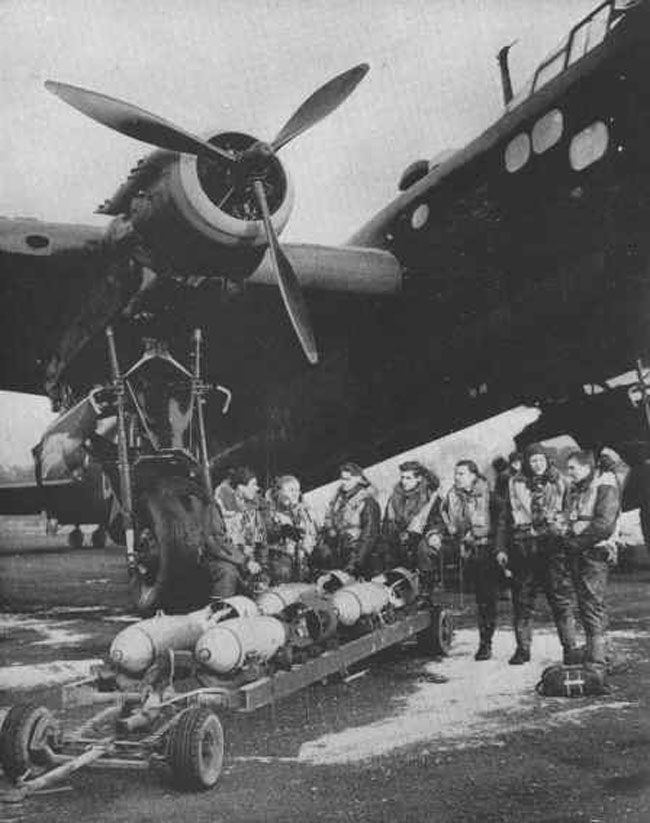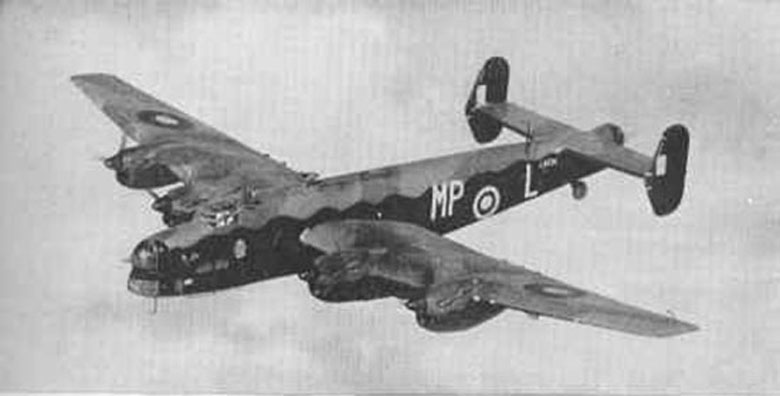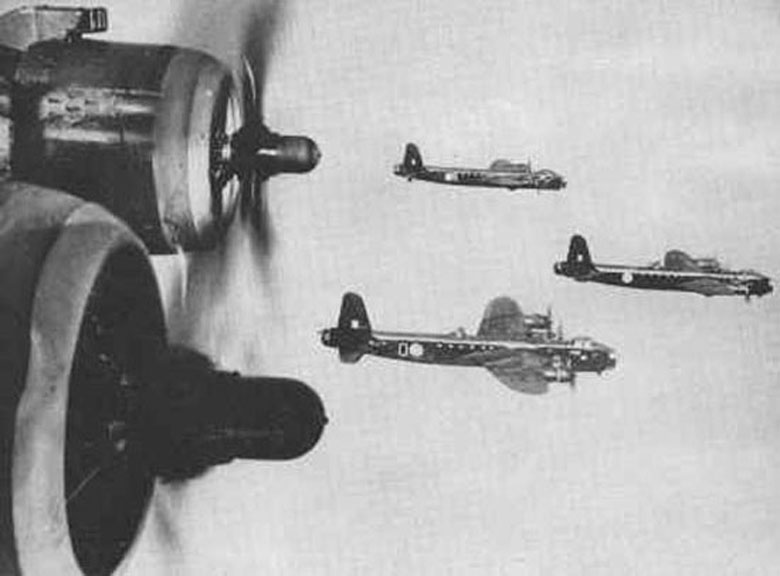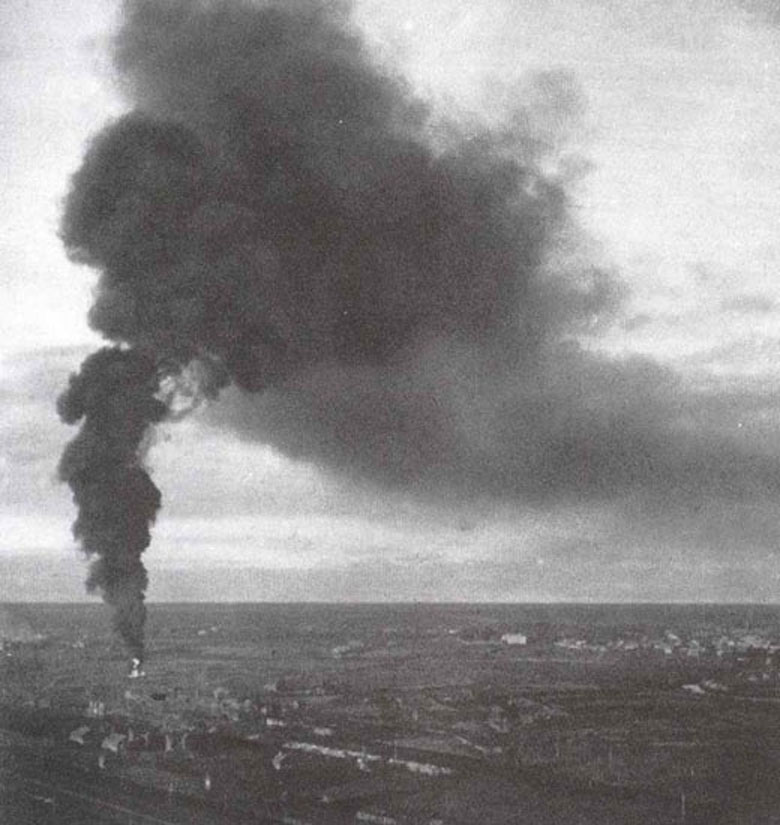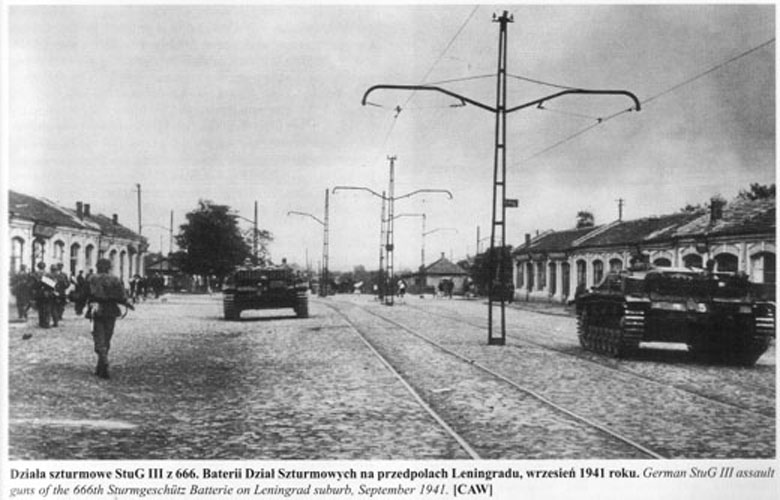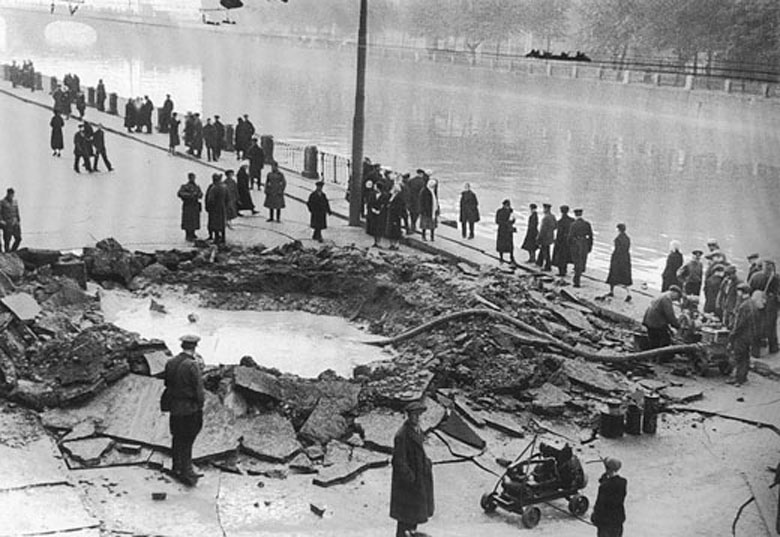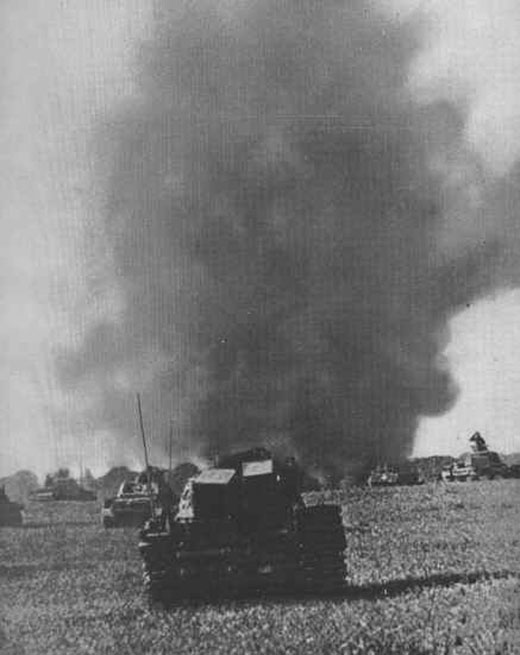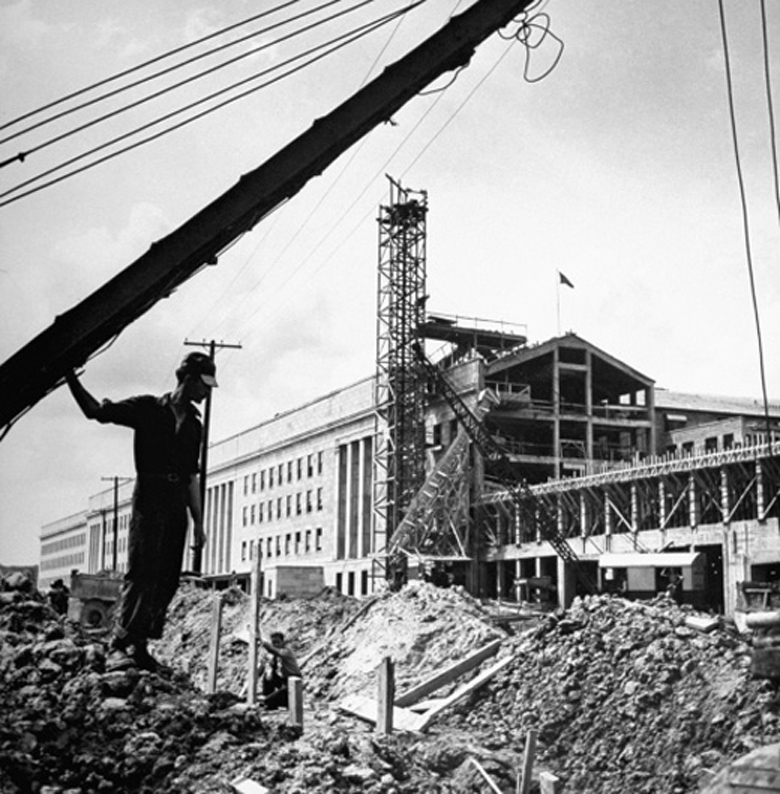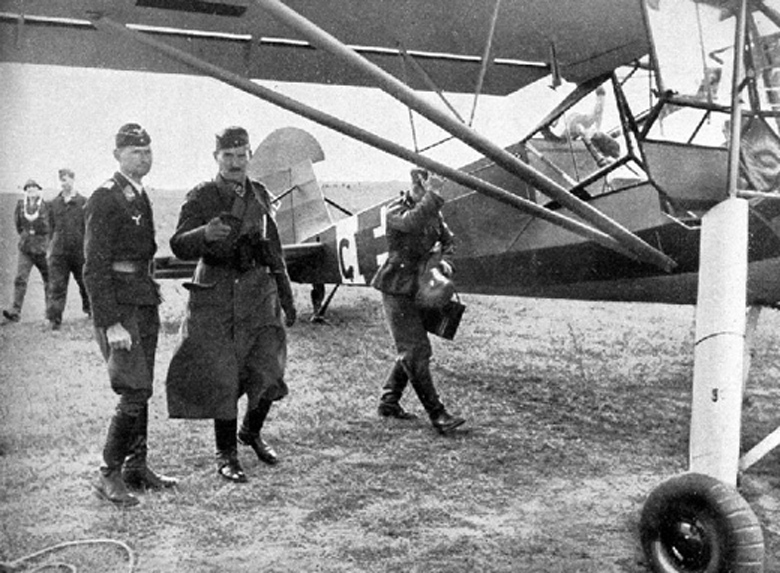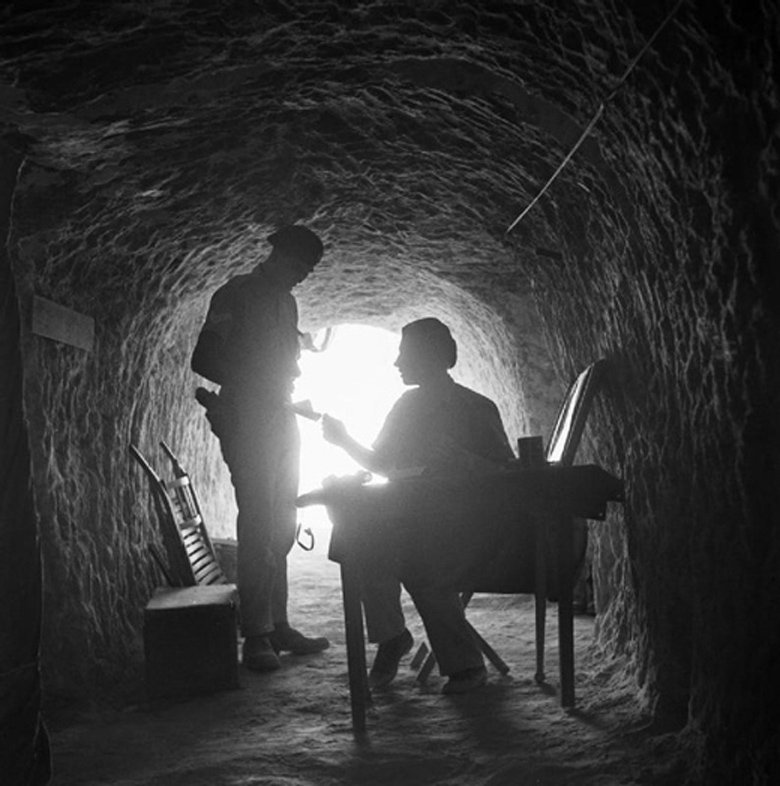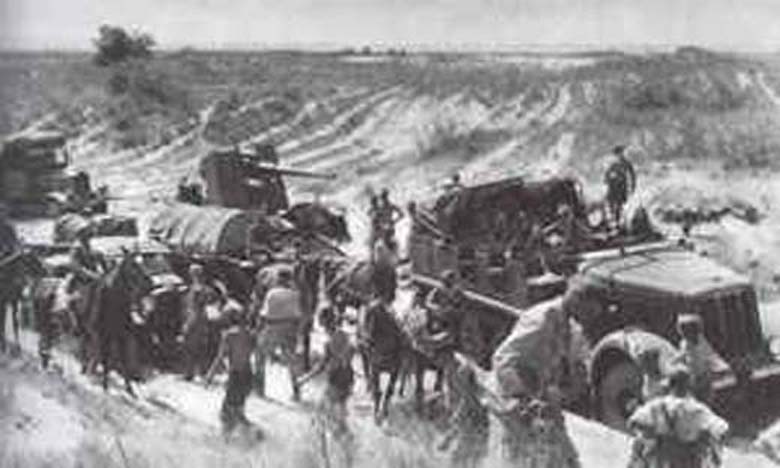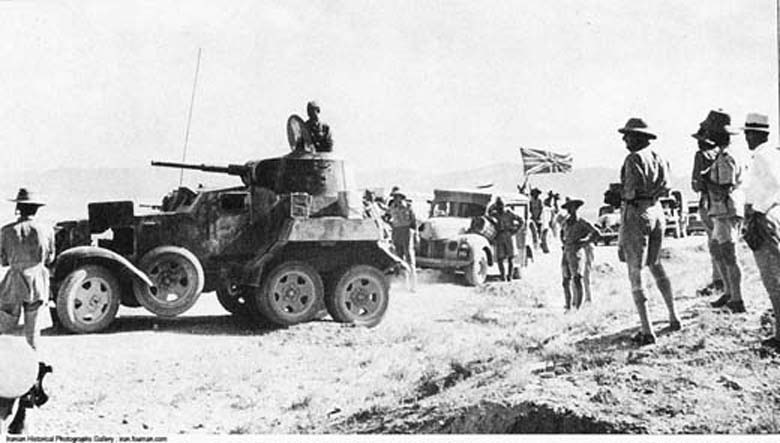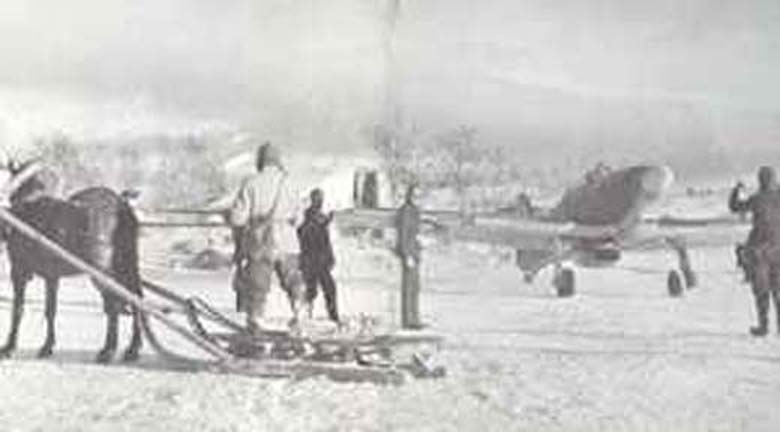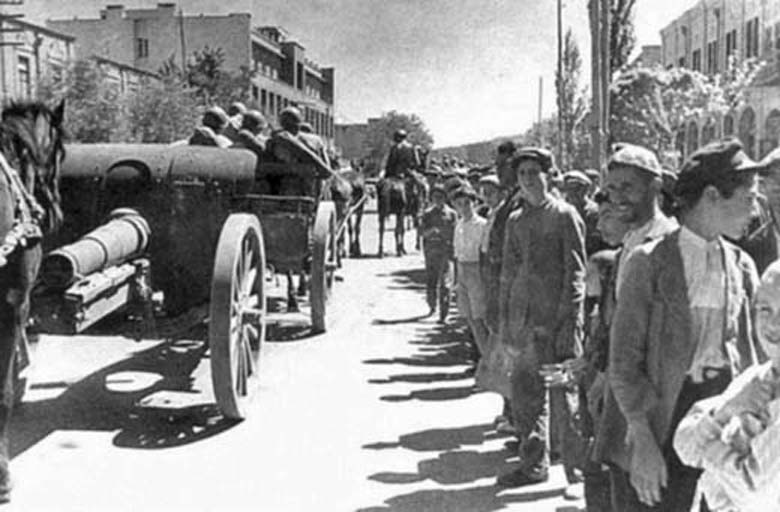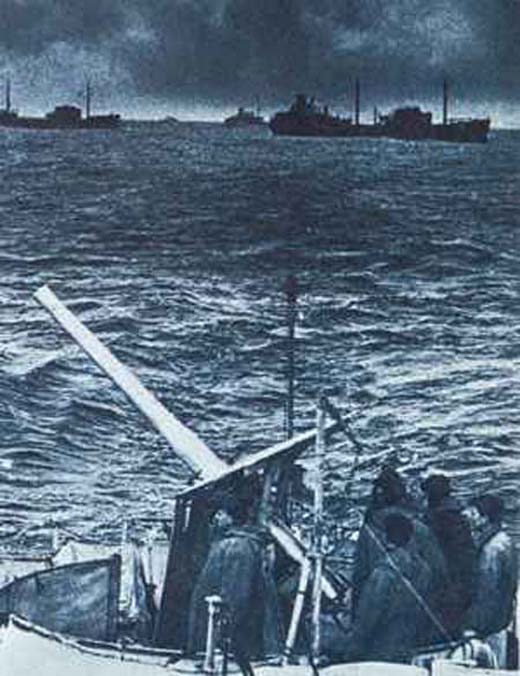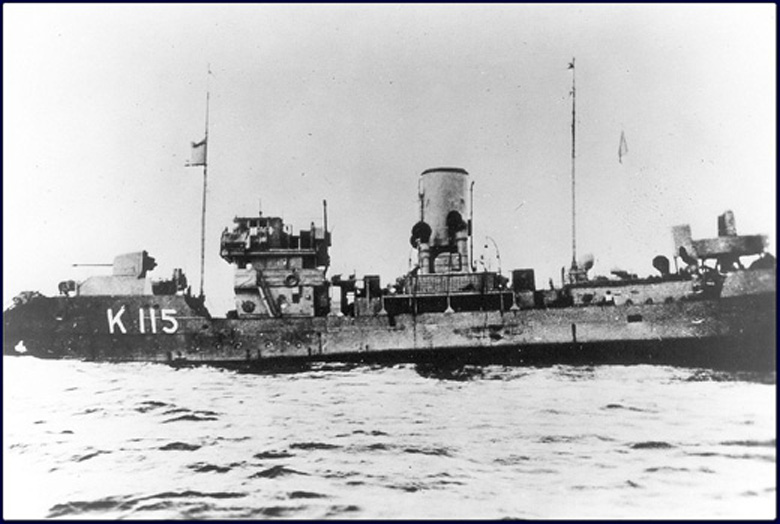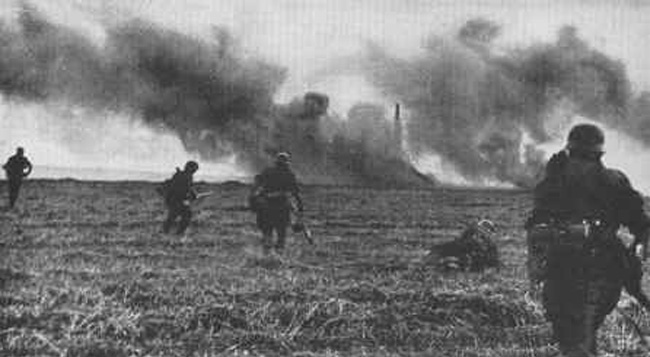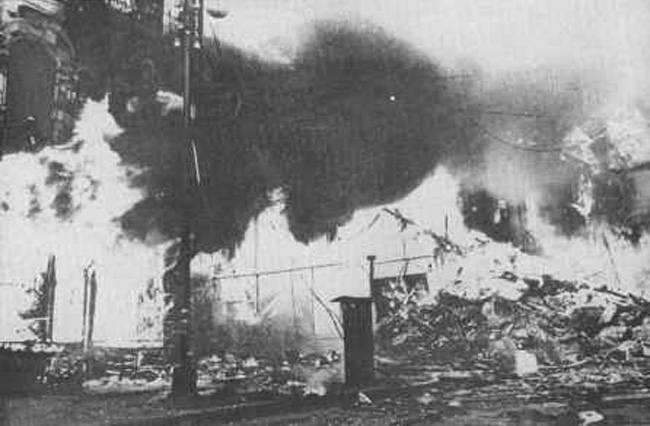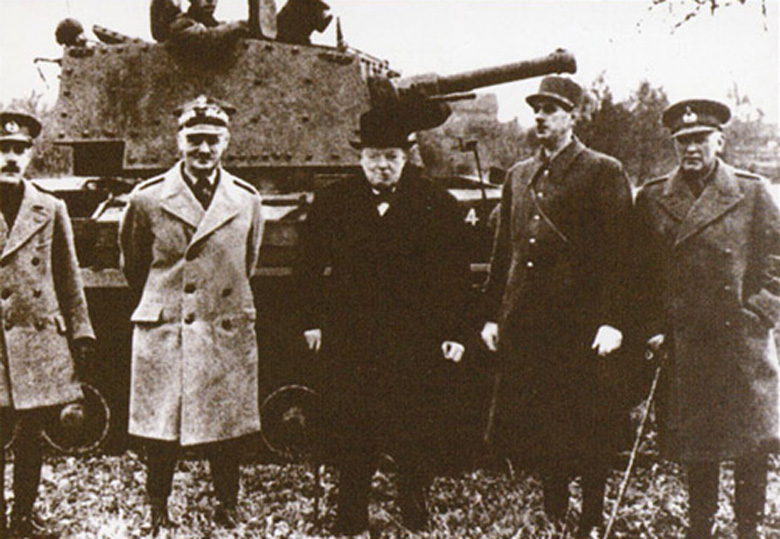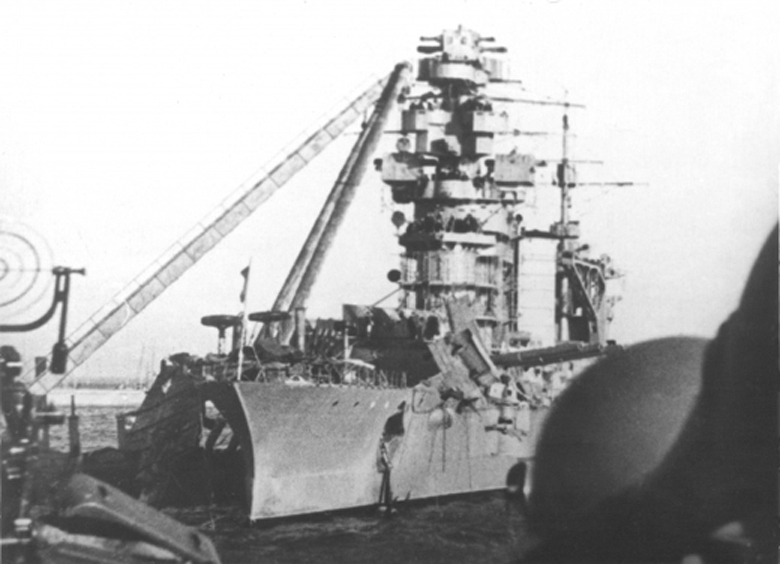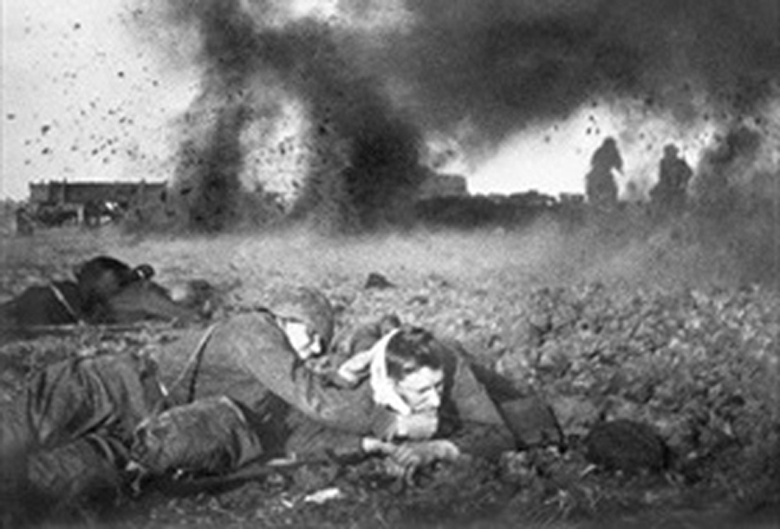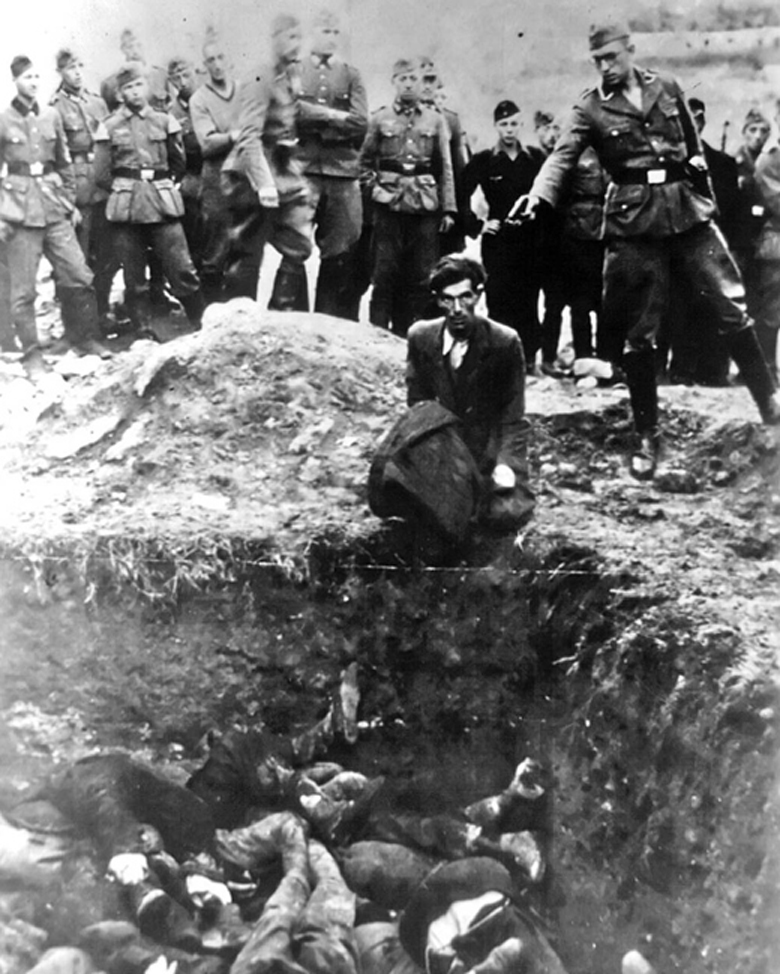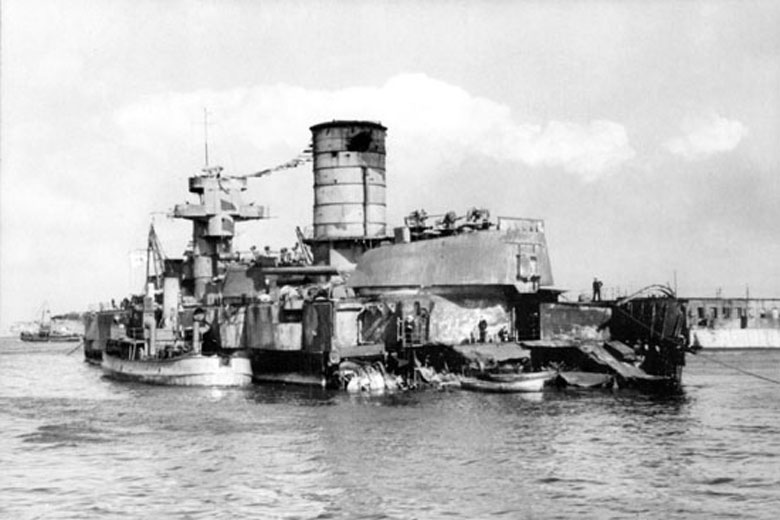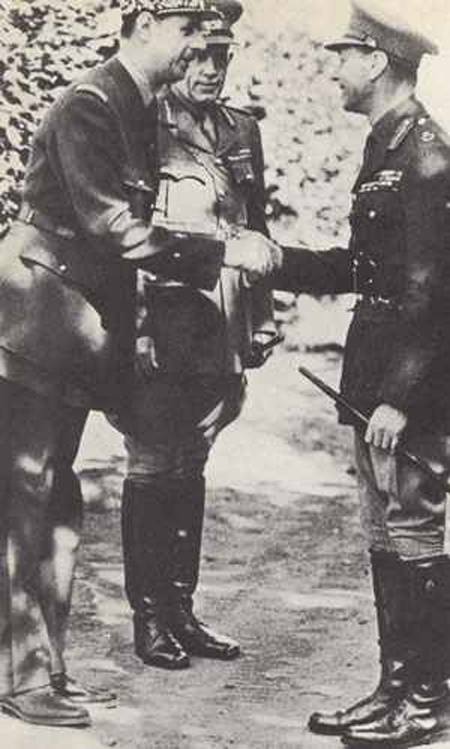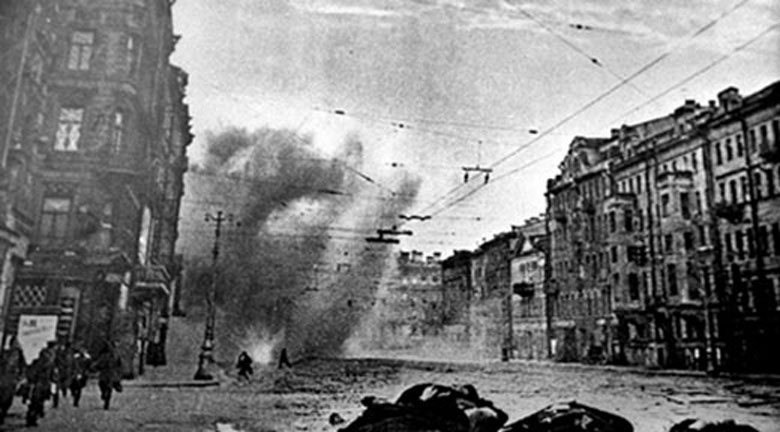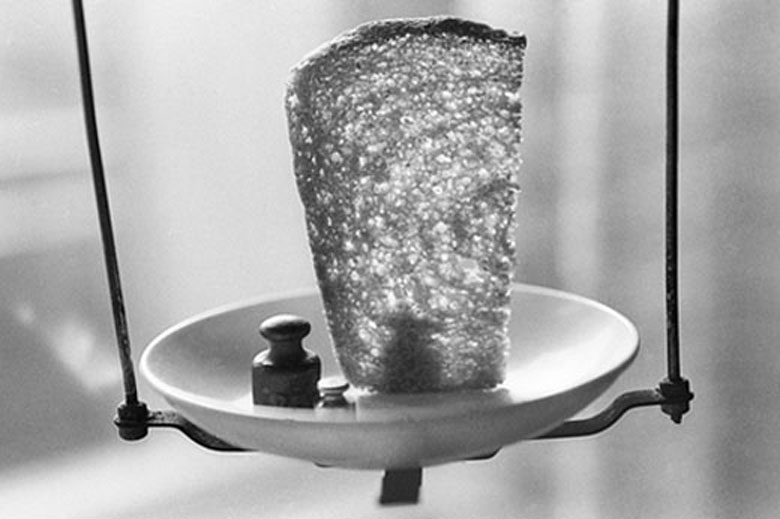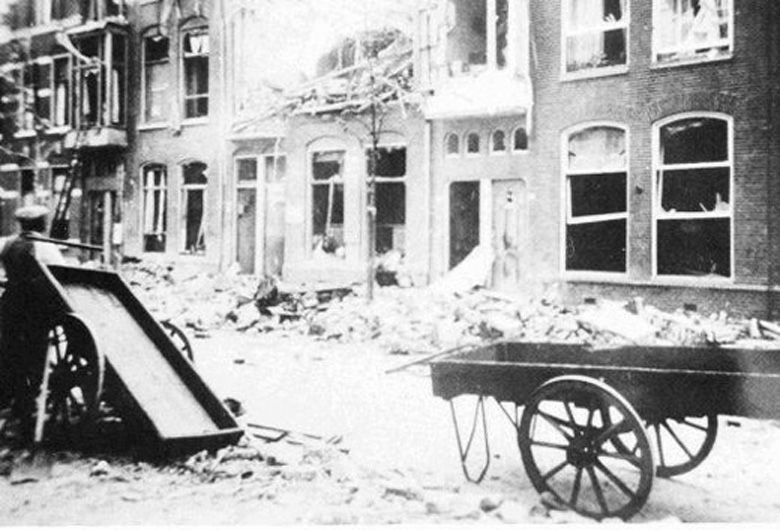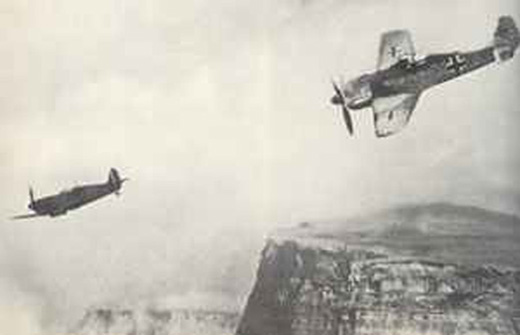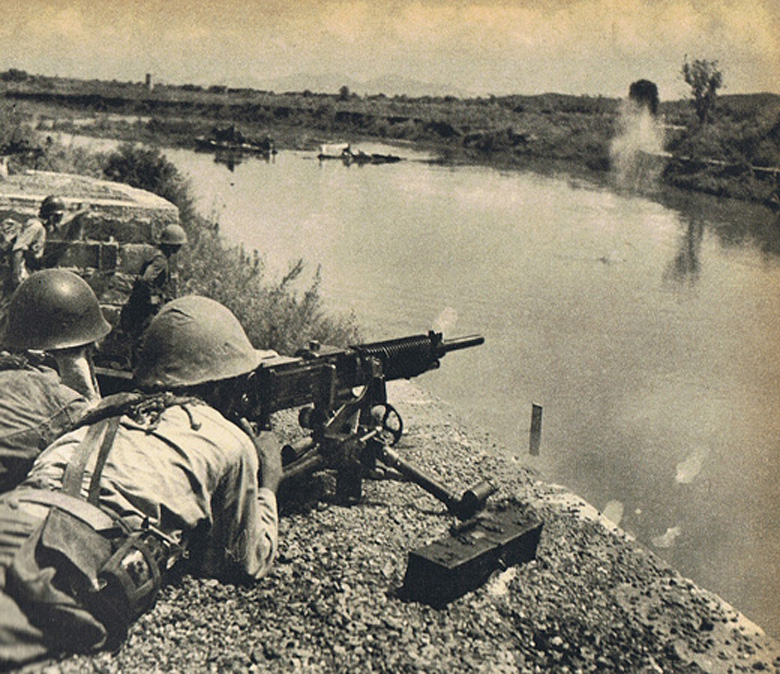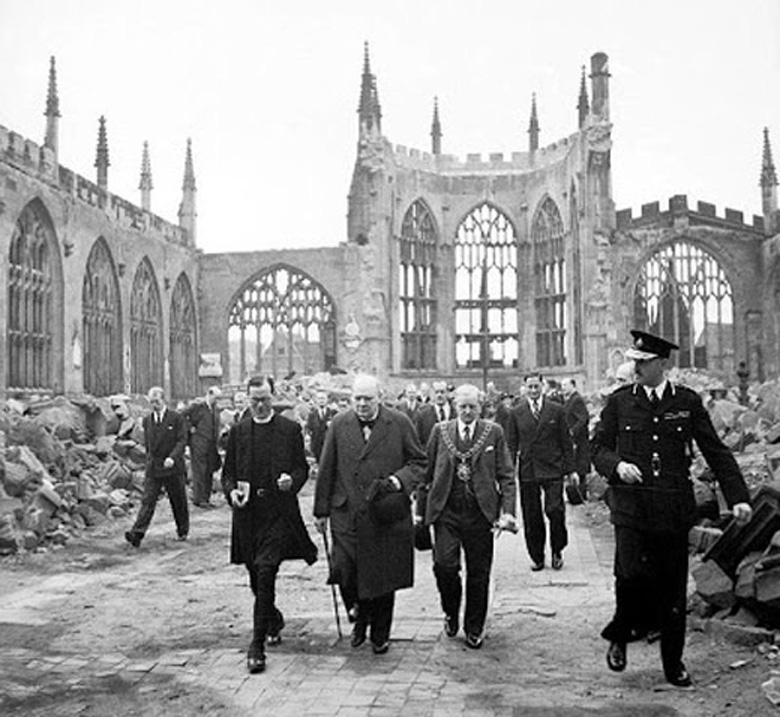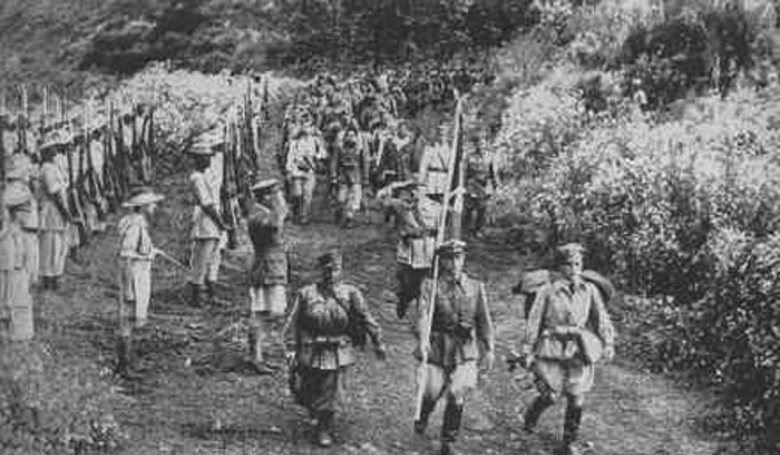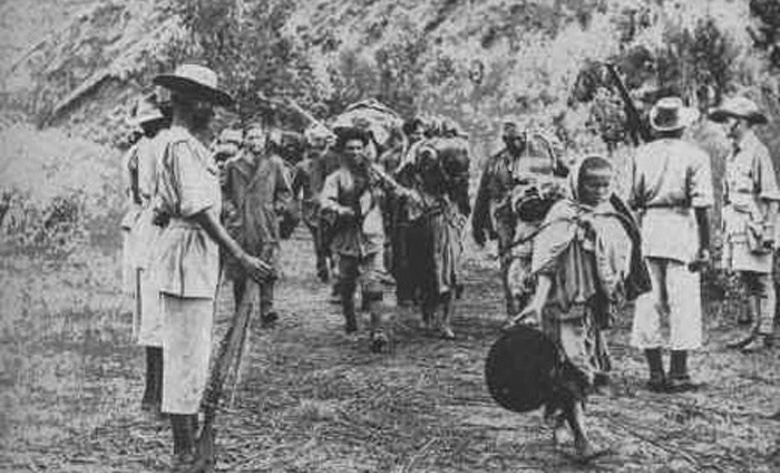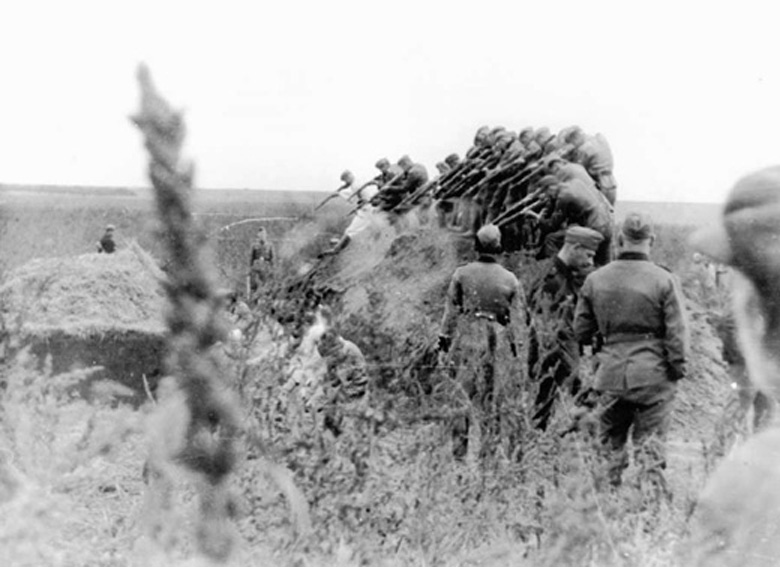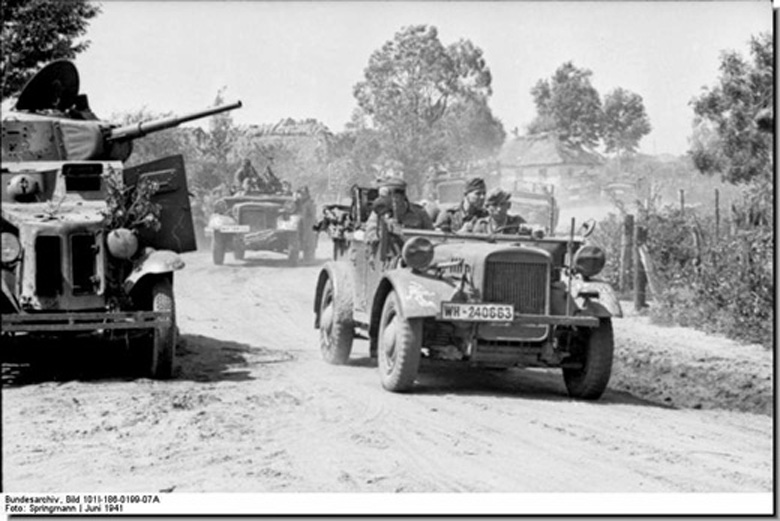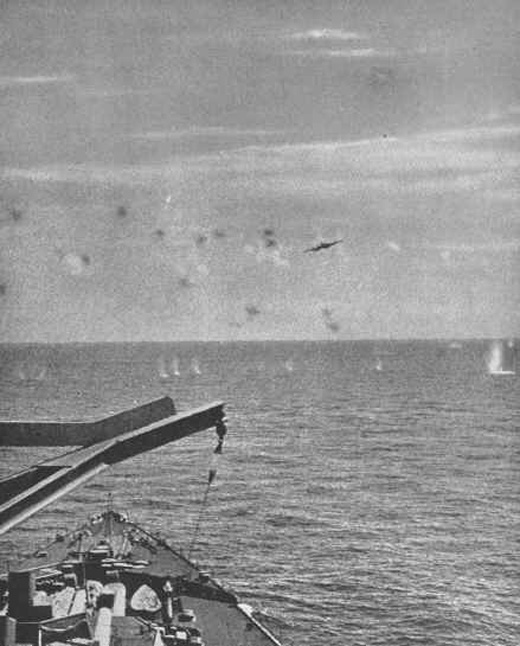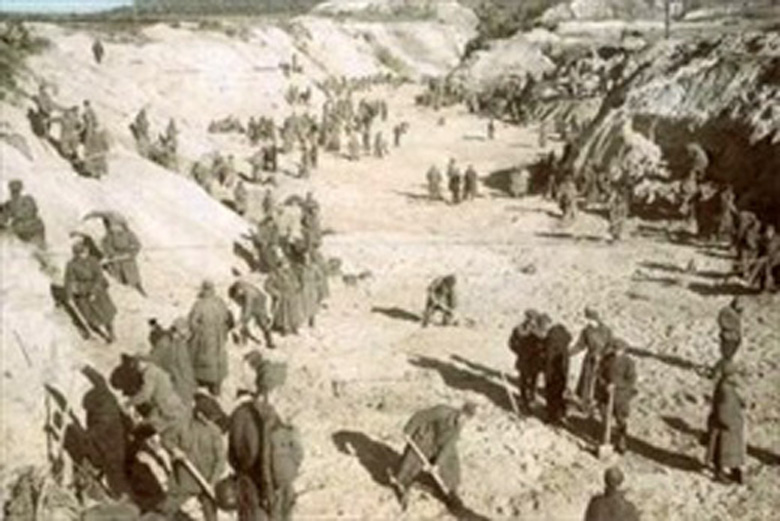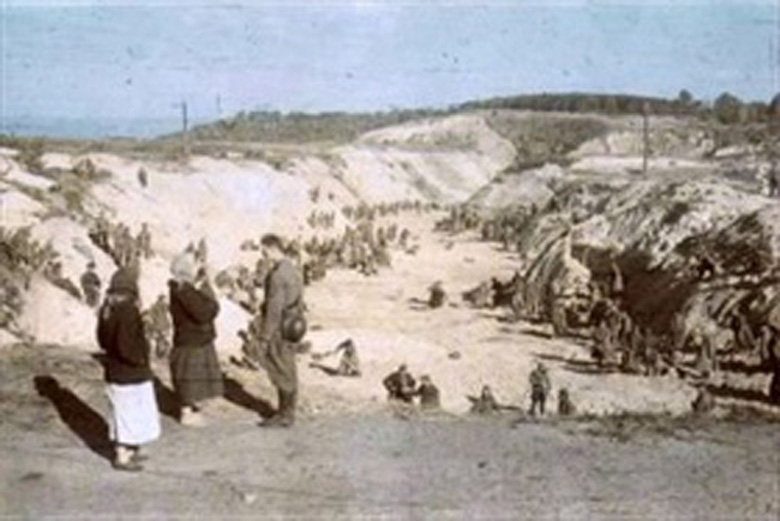Battle of the Atlantic
The US Atlantic Fleet forms a Denmark Strait patrol. At first 2 heavy cruisers and 4 destroyers are allocated to this duty, but this is increased later. The US Navy is now allowed to escort convoys in the Atlantic comprising ships of any nation provided an American merchant ship is present.
[Diplomatic Relations
A 60-ton Japanese fishing boat is sunk after hitting a Russian mine near Vladivostok sparking a bitter exchange between the Soviet Union and Japan. Tokyo demands safety guarantees for its ships. Moscow tells the Japanese to stay clear and refuses to pay an indemnity.
[Eastern Front
In the northerrn sector the attacking German forces are now within artillery range of Leningrad itself. To the east of the city the advance is nearing the south shore of Lake Ladoga and takes a great part of the left bank of the Neva but does not succeed in crossing the river. Schlüsselberg (called Petrokrepost since 1944) is taken and Leningrad is cut off from the rest of the country except by water across Lake Ladoga. The Russian position southwest of the city is equally desperate. Bridgeheads on the Gulf of Finland, just a few miles from Leningrad, have been established by the Germans. To the south Army Group North attacks vigorously in the Kolpino and Pulkovo sectors, 15 miles from the city. The Russians still have a major bridgehead at Oranienbaum, opposite Kronstadt and west of the point at which the Germans have established themselves on the Gulf of Finland.
FINLANDThe Soviet 23rd Army withdraws to the old Russo-Finnish border to hold the Finns on the Sestra Line.
German Troops Hunting Snipers |
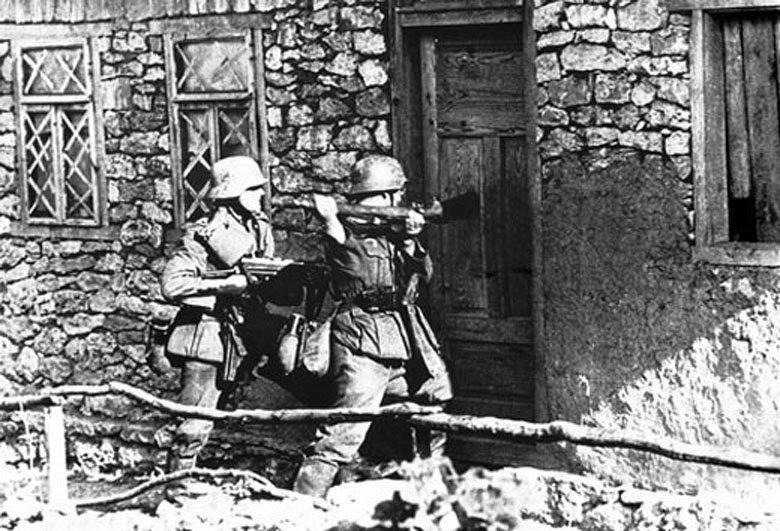 |
Having lost Mga on 31 August, the Germans retake the town. Leningrad comes under German artillery fire from Wehrmacht units south of the city.
CENTRAL SECTORThere is fierce fighting as the Soviets 16th, 19th and 20th Armies try to reach Smolensk. Guderian commits his reserve as the Bryansk Front attacks the XLVII Panzer Corps.[MORE]
[Germany, Policy
The German government orders that all Jews over the age of six must wear a badge with the Star of David sewn on their chest as 'a mark of shame'.
[North Africa
Italian agents of the Servizio Infomazione Militare steal the 'Black Code' from the US Embassy in Rome. This theft is to be of great value because the US Military Attaché in Cairo, Col Bonner Fellers, is accustomed to sending accurate and detailed reports to Washington concerning 8th Army's plans and dispositions. This source of intelligence lasts until June 1942.
[United States, Home Front
Roosevelt pledges every effort to defeat Germany because fundamental rights 'are threatened by Hitler's violent attempt to rule the world'.
[Soviet Union, Home Front
The mass deportation of 440,000 Volga Germans to Kazakhstan and Siberia begins. Many will be forced to work as slave labor in Gulag camps such as Kolyma. They will then be stripped of their citizenship and will not regain their civil rights until after Stalin's death. There are 151 train convoys departing from 19 stations, with 20,000 NKVD troops and large amounts of rolling stock and other resources being diverted from the war effort. Around 50-60 people, including the young, old, women and children, are packed into each freight car and given water only when the train stops every three or four days. Food, when provided, is salted herring, which only makes the prisoners' thirst even greater. The journey will take many weeks and will result in 40 percent of those being moved dying from either cold or malnutrition.
[Yugoslavia
Tito's Partisans begin active resistance operations in southwest Serbia. Draza Mihailovic gets word out to the west that he is organizing resistance and is hailed as a hero by the Allied press.
[